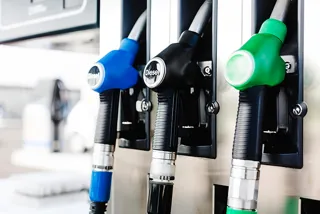Fleet decision-makers and company car drivers should see pump prices fall in the next two weeks, according to new data from RAC.
It says that virtually static petrol prices in October should give way to pump price cuts of up to 5p per litre within the next fortnight as low oil demand pushes prices down.
Asda has already announced a fuel price cut this morning. It has cut up to 2p off a litre of petrol (charging no more than 108.7p) and 3p off diesel (charging no more than 111.7p).
Although the price of a litre of petrol was practically unchanged for a second month running at a little over 114p on average last month (114.53p at the start of the month, 114.43p at the end), wholesale unleaded prices dropped 4.62p to just 82.26p through October thanks to falling oil prices, according to new RAC Fuel Watch data.
RAC says it should herald lower prices at forecourts – just as England enters its second nationwide coronavirus lockdown.
RAC fuel spokesman Simon Williams said: “It’s good to see Asda leading the way this morning with an initial price cut and we now need other retailers to follow suit as quickly as possible.”
Pressure had also been mounting on retailers to cut the price of diesel, which the RAC believes has been over-priced for nearly two months now.
Between the middle of August and the middle of October, the wholesale price of diesel was below that of petrol and in October it fell yet again by 4.62p per litre to 83.73p.
Yet diesel pump prices remain significantly higher than petrol at 117.82p at the end of last month, down just 0.27p compared to at the start of October.
While prices of petrol and diesel at supermarkets followed the UK average by barely changing last month, at 109.6p and just under 114p respectively. The price of a litre of unleaded is now 131.09p, up 4.26p, with diesel at 135.19p, up 4.05p.
The cost of filling up a 55-litre family car with petrol at a supermarket is now £2.65 less than the average (£60.29 per tank, compared to £62.94), and £2.24 less to fill with diesel (£62.56 per tank, compared to £64.80).
The falling oil price is as a result of ongoing concern about global demand as the second coronavirus wave continues to impact on trade and travel. In the shorter term, the result of the US election may also have some effect on prices, although analysts seem split on whether it could mean prices end up slightly higher or slightly lower, depending on who gets elected.
Williams continued: “While we’re not expecting prices to go as low as last time – March saw petrol prices under £1 a litre as a result of oil prices falling to a 21st century low – any driver needing to fill up later in November should be greeted by the sight of lower prices, if retailers do the right thing.
“It remains to be seen, however, to what extent retailers pass on the wholesale savings they have been enjoying recently to drivers.”
Williams believes that, while the volume of fuel sold in the coming weeks is likely to be lower than of late, he is concerned some retailers may only choose to only cut by a few pence, or not at all.
“There is perhaps a cruel irony for motorists here in that the route to cheaper prices is cheaper oil, yet the main reason the oil price is lower is because so many of us across the world aren’t travelling,” said Williams.
“Diesel drivers in particular have reason to feel particularly hard done by, as arguably they have been paying over the odds for the fuel for two whole months now. We strongly urge retailers to lower the price of diesel, both for businesses and the country’s 12m-plus diesel car drivers.”






















Login to comment
Comments
No comments have been made yet.